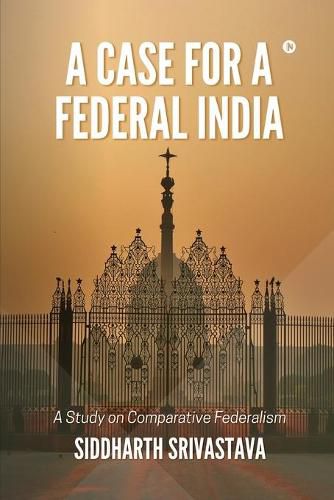Readings Newsletter
Become a Readings Member to make your shopping experience even easier.
Sign in or sign up for free!
You’re not far away from qualifying for FREE standard shipping within Australia
You’ve qualified for FREE standard shipping within Australia
The cart is loading…






‘A Case for a Federal India’ involves a novel study on comparative federalism. The author makes out a case against the quasi-federal or unitary characterisation of the Constitution of India by the jurists and justices alike. India has often been characterised as a quasi-federal nation considering that it possesses several unitary features which may not be present in a traditional federation such as the United States of America or Australia. However, these characterisations did not involve an in-depth study of federalism. The author argues that even the traditionally federal constitutions are not purely federal in the modern day, considering that the courts and governments have introduced several unitarian features which were not present when these federations came into existence. For instance, the two World Wars and the Great Economic Depression necessitated a stronger federal government in the U.S.A. to effectively counter these situations. As a necessary corollary, several constitutional amendments were introduced to grant strong unitarian powers to the federal government such as the emergency powers. Therefore, the present position of India concerning federalism is very much similar to the modern-day federations of the U.S.A. and Australia, rendering the quasi-federal characterisation questionable. This book attempts an in-depth study of federalism and argues against the quasi-federal characterisation of India.
$9.00 standard shipping within Australia
FREE standard shipping within Australia for orders over $100.00
Express & International shipping calculated at checkout
‘A Case for a Federal India’ involves a novel study on comparative federalism. The author makes out a case against the quasi-federal or unitary characterisation of the Constitution of India by the jurists and justices alike. India has often been characterised as a quasi-federal nation considering that it possesses several unitary features which may not be present in a traditional federation such as the United States of America or Australia. However, these characterisations did not involve an in-depth study of federalism. The author argues that even the traditionally federal constitutions are not purely federal in the modern day, considering that the courts and governments have introduced several unitarian features which were not present when these federations came into existence. For instance, the two World Wars and the Great Economic Depression necessitated a stronger federal government in the U.S.A. to effectively counter these situations. As a necessary corollary, several constitutional amendments were introduced to grant strong unitarian powers to the federal government such as the emergency powers. Therefore, the present position of India concerning federalism is very much similar to the modern-day federations of the U.S.A. and Australia, rendering the quasi-federal characterisation questionable. This book attempts an in-depth study of federalism and argues against the quasi-federal characterisation of India.